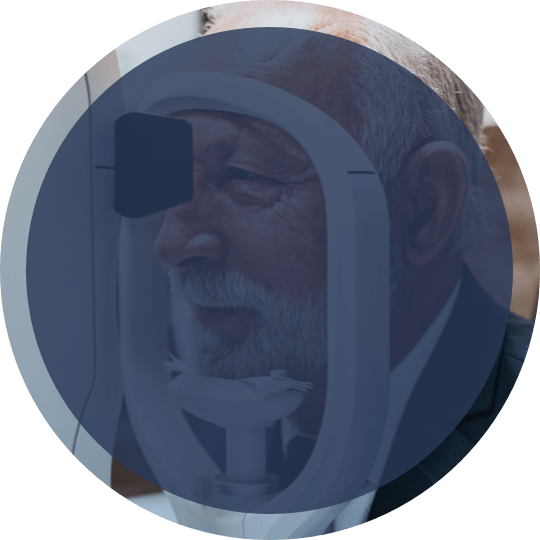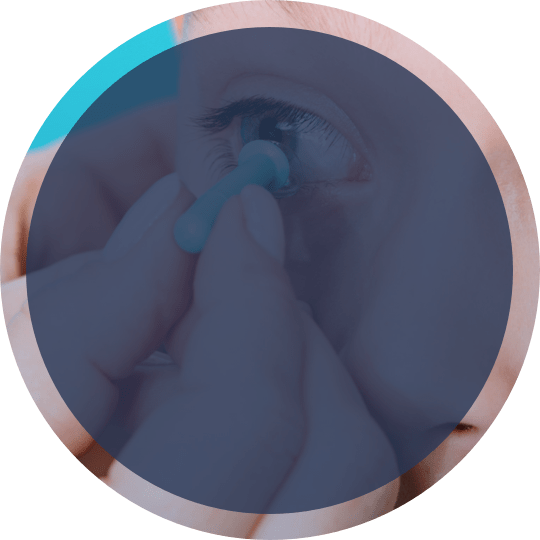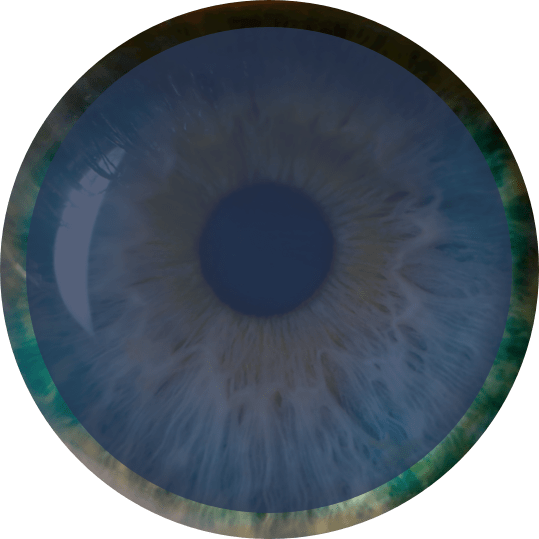
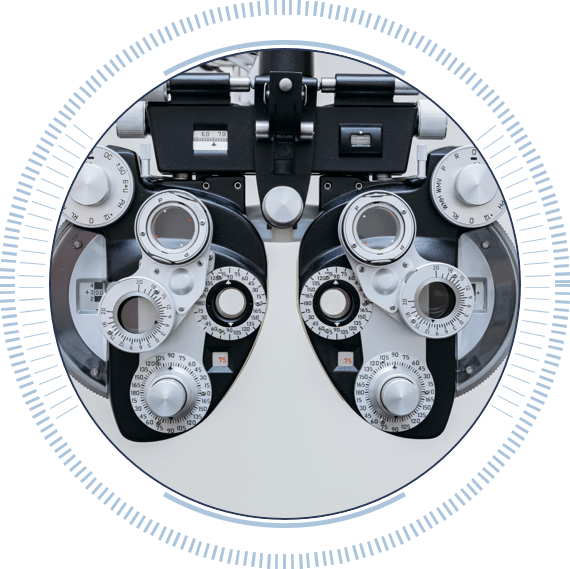
The Foundation of Healthy Eyes & Vision
Visiting for regular eye exams goes beyond simply updating your prescription. An eye exam is your opportunity to ensure your eyes receive the appropriate care.
During an eye exam, we’ll do a comprehensive examination of your eyes. We’ll test your visual acuity, as well as check for any refractive errors and developing eye diseases. Visiting for regular eye exams is the foundation of supporting your eyes and vision for years to come.
Frequency of Eye Exams
The frequency with which you need an eye exam depends on your age, changes in your vision, and your overall ocular health.
The American Academy of Ophthalmology recommends you should have your eyes examined once in your 20s and twice in your 30s if you don’t need corrective glasses or contact lenses. These days children are adeptly screened by their pediatricians and family physicians, who will refer to an ophthalmologist as needed. You should again have an eye exam at age 40, then again at least every 5 years until age 65, after which the recommendation is to have an exam every 1 to 2 years.
If you have a child, it’s also important to bring them in for a children’s eye exam.
Common
Eye
Diseases
One of the most important parts of regular eye exams is identifying eye health issues early, specifically eye diseases. As some eye diseases don’t show any early symptoms, it’s difficult for patients to seek out care before eye and vision damage has been done.
Glaucoma
Glaucoma is one of the leading causes of blindness in people over 60 years of age. The name glaucoma refers to a group of eye diseases that damage the optic nerve. One of the major concerns with glaucoma is its lack of early warning signs and symptoms. For this reason, glaucoma is called the ‘silent thief of vision. In most cases, an eye exam is needed to identify it before serious damage is caused.
If the disease is caught in its early stages, glaucoma management can reduce the risk of early vision loss.
Cataracts
Cataracts are the eye condition most commonly related to aging. They occur when the eye’s natural lens begins to cloud, making it hard for patients to see objects and colors clearly. Cataracts can also develop quicker because of certain health conditions, such as diabetes.
The vision changes caused by cataracts can be alleviated to some extent with glasses. However, for full treatment, the eye’s natural lens has to be replaced with an artificial lens during cataract surgery.
Diabetic Retinopathy
Diabetic retinopathy is an eye disease caused by the effects of diabetes on a patient’s eye. Diabetes impacts a patient’s blood sugar levels, damaging the eyes’ delicate blood vessels. Fluctuating blood sugar levels can cause these blood vessels to leak into the retina. Diabetic retinopathy is the leading cause of new blindness in this country, and vision loss is largely preventable if caught and treated in a timely manner.
Patients with diabetes require frequent specialized eye exams to detect diabetic retinopathy in its early stages.
Your Next Eye Exam
Have you booked your next visit for an eye exam? Schedule your appointment today!

Our Location
You can find our practice near the historic downtown Riverside, California. If you have any trouble finding us, give us a call!
To request an appointment please call or text us at 951-686-4911.
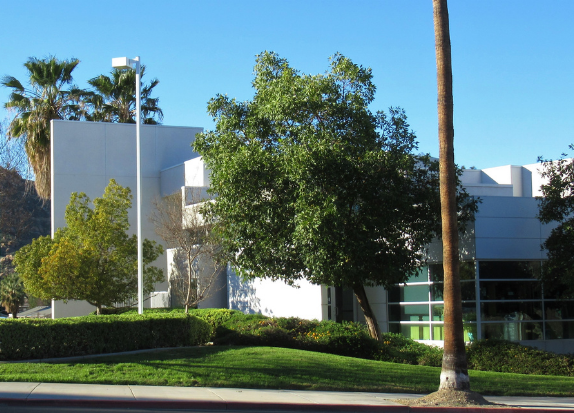
Our Address
- 4605 Brockton Ave, Suite 100
- Riverside, CA 92506
Contact Information
- Phone: 951-686-4911
- Fax: 951-686-9409
Hours Of Operation
- Monday: 8:00 AM – 4:30 PM
- Tuesday: 8:00 AM – 4:30 PM
- Wednesday: 8:00 AM – 4:30 PM
- Thursday: 8:00 AM – 4:30 PM
- Friday: 8:00 AM – 4:30 PM
- Saturday: Closed
- Sunday: Closed
Our Services
Our Brands








